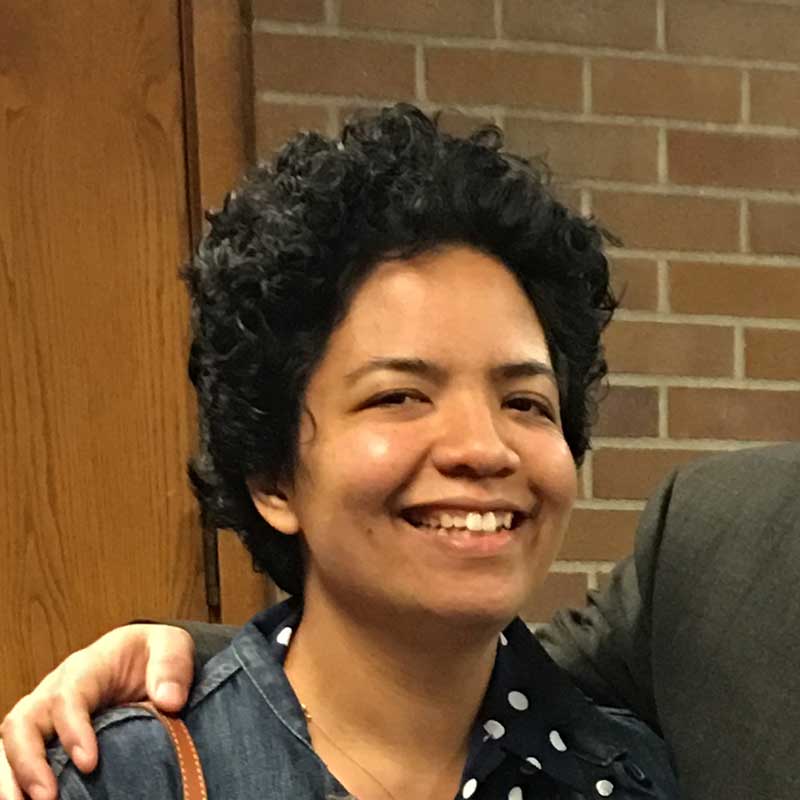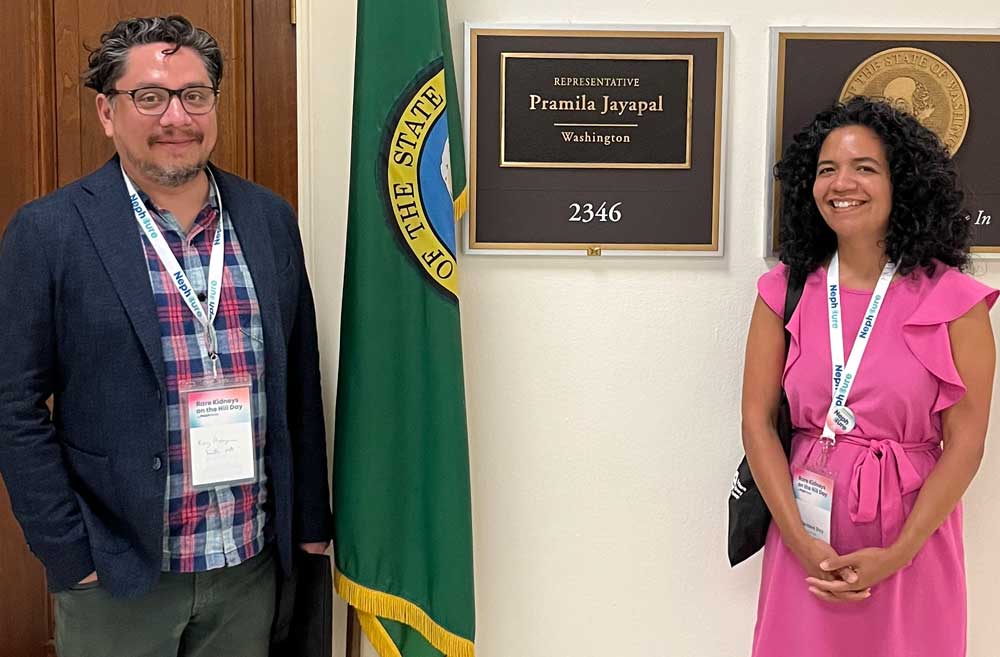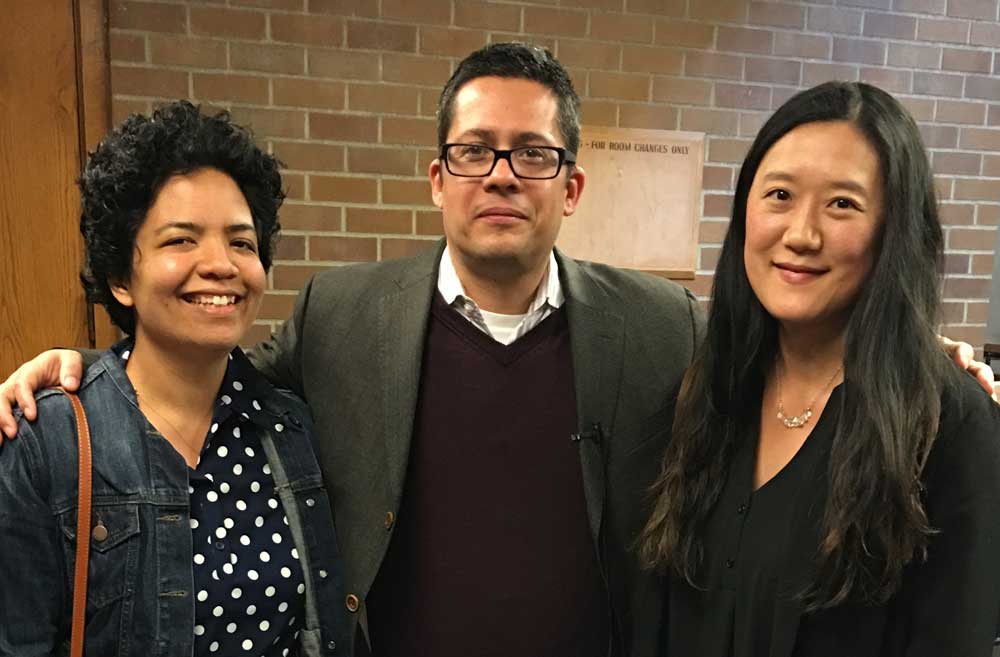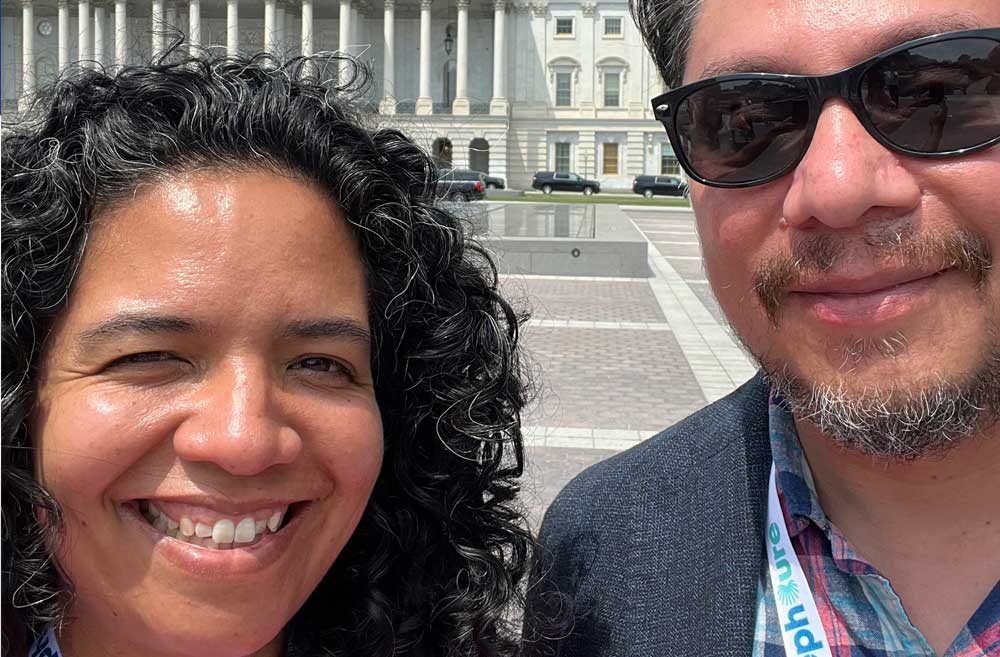Seferiana's Story
Living with Primary Membranous Nephropathy
Seferiana’s pMN journey began in 2016 when a shocking diagnosis disrupted her active lifestyle and marathon training. Although Seferiana has faced treatment challenges, she has also found strength in community and discovered her voice as an advocate. Today she serves on the Kidney Health Initiative Patient and Family Partnership Council, where she helps shape future treatments and support for patients like her.

Seferiana was 30 years old and in the prime of her life, working in city government and training for half-marathons, when she noticed swelling in her ankles. After months of tests and a kidney biopsy, she was diagnosed with Primary Membranous Nephropathy (pMN), a rare autoimmune kidney disease. “It was scary,” she recalls. “My doctor said that it was rare, and that she didn’t really know anything about it.”
Despite treatment, Seferiana’s kidney function declined significantly.
While my pMN seemed to be better, my kidneys were failing. So much damage has been done that we can’t really go back.
Now preparing for a kidney transplant, Seferiana is navigating both lifestyle adjustments and the side effects of ongoing treatments. To help manage her pMN, Seferiana has taken steps such as cooking at home and lowering salt intake. With the support of NephCure, she has found community, encouragement, and the tools to better advocate for her own care.
Seferiana serves on the Kidney Health Initiative Patient and Family Partnership Council, a collaboration between the Food & Drug Administration and the American Society of Nephrology to improve kidney care. As part of this effort, she has participated in an innovation summit focused on patient needs in kidney research, a topic that has direct impact on her future.
What is the advice that she would offer a newly diagnosed pMN patient?
Find a specialist. Get a second opinion. Don’t be afraid to advocate for yourself.
Support and Resources
If you or a loved one have been diagnosed with pMN, you are not alone. Below are nonprofit advocacy organizations and communities that offer information and support for patients and caregivers.


